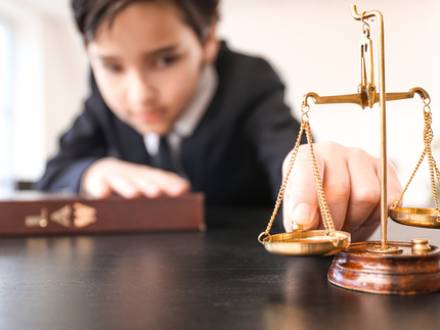Can Children Testify in Their Own Custody Cases in Illinois?
 When parents in Illinois cannot agree on child custody, known as the allocation of parental responsibilities in Illinois, the judge must decide what is in the child’s best interests. In some cases, that includes hearing directly from the child. But children do not automatically have the right or obligation to testify.
When parents in Illinois cannot agree on child custody, known as the allocation of parental responsibilities in Illinois, the judge must decide what is in the child’s best interests. In some cases, that includes hearing directly from the child. But children do not automatically have the right or obligation to testify.
Whether and how children can voice their opinions in court depends on several factors, including their age, maturity, and the sensitivity of the case. To find out whether your child might be able or required to offer testimony, speak with an experienced DuPage County, IL family law attorney about your case.
How Old Does a Child Have to Be to Testify in Illinois Family Court?
Illinois law does not set a minimum age for a child to testify in a custody case. Instead, the judge decides whether the child is mature enough to express a sensible, reasoned preference. In general, courts are more likely to consider the opinion of a child who is at least 12 or 13 years old, but even younger children may be allowed to speak if they seem emotionally and mentally able to do so.
The court will also consider whether testifying in open court would cause the child emotional harm. As of July 2025, Illinois courts continue to apply the "best interests" standard outlined in 750 ILCS 5/602.7 when making custody decisions; anything that would not serve the child’s best interests would not be entertained. Instead, the judge might allow an in-camera interview, which is a private conversation in the judge’s chambers instead of the courtroom.
What Factors Do Judges Consider When Deciding If a Child Can Testify?
Illinois judges take a cautious approach to child testimony, especially in emotionally charged custody battles. Some of the main factors the court may consider include:
-
The child’s age and maturity
-
Whether the child’s preference appears to be their own or is the result of pressure from a parent
-
The child’s ability to understand the situation and express a consistent preference
-
Whether testifying would place the child in the middle of a parental conflict
-
The nature of the case (such as allegations of abuse or neglect)
If a child does testify or speak to the judge, their opinion is just one of many factors the court will weigh. A child’s preference may be taken into account, but it is never the only consideration.
How Else Can a Child’s Voice Be Heard in a Custody Dispute?
Even if a child does not testify, the court has other ways to learn about their wishes and needs and make decisions accordingly. Judges often appoint a guardian ad litem (GAL), a trained attorney who investigates the family situation and makes recommendations to the court. The GAL may speak with the child, both parents, teachers, and others to understand what would be best for the child’s well-being.
In some cases, a custody evaluator or mental health professional may be involved to assess the child’s relationship with each parent.
Is It a Good Idea for Children to Testify in Custody Disputes Concerning Them?
Testifying can be stressful for anyone, and children are no exception. For children whose parents are involved in a custody battle, the situation can be even more challenging. In most cases, it is not necessary for a child to appear in court. Judges and attorneys try to protect children from being placed in the middle of parental disputes. If you believe your child’s voice needs to be heard, your attorney can help request a GAL or advocate for a private interview with the judge rather than courtroom testimony.
Schedule a Free Consultation with a Glen Ellyn, IL Child Custody Lawyer
If custody is in dispute and you are unsure whether your child should testify, speak with a skilled DuPage County, IL family law attorney. The team at NN Legal Group offers free consultations and personalized guidance to help you protect your child’s interests. Hablamos Español. Call 630-474-0925 to learn more about your options.

















